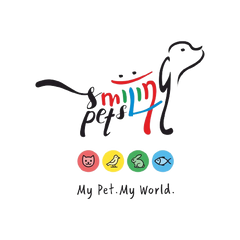These 10 Ingredients to Avoid in Dog Food for Dog's Good Health
Choosing the right dog food is critical to ensuring your pet’s health and longevity. While there are many high-quality options available, some commercial dog foods still contain harmful or unnecessary ingredients that can jeopardize your dog’s well-being. These ingredients may not only reduce the nutritional value of the food but could also lead to health problems over time.
Being informed about these harmful additives and fillers is the first step in providing your furry friend with the diet they need to thrive. Here are ten ingredients you should avoid in your dog’s food and why steering clear of them is so important.
Artificial Preservatives

Artificial preservatives like BHA (butylated hydroxyanisole), BHT (butylated hydroxytoluene), and ethoxyquin are often added to dog food to prolong its shelf life. While they may keep the food fresh for extended periods, these chemicals have been linked to serious health concerns, including cancer, liver dysfunction, and hormonal imbalances. Prolonged exposure to these substances can weaken your dog’s immune system and lead to chronic illnesses over time.
Instead of artificial preservatives, look for dog foods that use natural alternatives like vitamin E (tocopherols) and rosemary extract. These natural options are just as effective at preserving food without exposing your pet to harmful chemicals. By opting for dog foods with natural preservation methods, you’ll not only improve your dog’s diet but also reduce the risk of long-term health problems.
Artificial Colors and Dyes
Many commercial dog food products use synthetic dyes such as Red 40, Yellow 5, and Blue 2 to make their products more visually appealing to humans. However, these colors provide no nutritional benefit to dogs and can have harmful effects. Studies have linked artificial dyes to allergies, hyperactivity, and even cancer in pets. For dogs with sensitive skin or pre-existing health conditions, these additives can exacerbate problems, leading to unnecessary discomfort and medical expenses.
When selecting dog food, focus on products that rely on natural ingredients for color. Foods that are naturally colored through whole food components like carrots, spinach, or blueberries not only avoid harmful dyes but also add beneficial nutrients to your dog’s diet.
Corn Syrup and Sugars
Added sugars, such as corn syrup, are commonly used in low-quality dog foods to enhance flavor. These sugars are highly addictive, leading dogs to overconsume food, which can result in obesity, diabetes, and dental problems over time. Moreover, excessive sugar intake contributes to behavioral changes such as hyperactivity and difficulty concentrating, especially in younger dogs.
Choose dog food that avoids added sugars and instead uses naturally sweet ingredients like sweet potatoes or apples. These alternatives provide essential vitamins and fiber, promoting a healthier diet without compromising taste. Eliminating unnecessary sugars from your dog’s food can lead to better weight management, improved dental health, and a more balanced energy level.
Meat By-Products
Meat by-products are a vague term used to describe low-quality animal parts such as bones, beaks, intestines, and hooves. These ingredients often come from unidentified sources, making it difficult to determine their safety or nutritional value. Additionally, meat by-products lack the essential proteins and amino acids that high-quality meat provides, which are critical for maintaining muscle development, organ function, and overall vitality.
Instead, prioritize dog food that lists whole meats or clearly labeled meat meals (e.g., “chicken meal” or “salmon meal”) as the primary protein source. These ingredients are not only more digestible but also provide the nutrients your dog needs to stay healthy and active.
Fillers
Fillers such as corn, wheat, and soy are commonly added to dog food to bulk up the volume without providing any real nutritional value. These ingredients can be especially problematic for dogs with sensitive stomachs or food allergies, as they often trigger gastrointestinal issues and skin irritations. In the long run, relying on fillers can deprive your dog of essential nutrients, leading to poor overall health.
Opt for dog foods made with high-quality grains like quinoa, oats, or brown rice, or consider grain-free options if your dog is prone to allergies. These alternatives not only improve digestibility but also ensure your pet is getting a nutrient-rich meal that supports their well-being.
Rendered Fat
Rendered fat is a low-quality fat source that is often added to enhance the flavor of dog food. However, it is derived from various animal sources, some of which may be diseased or decomposing. This ingredient can serve as a breeding ground for harmful bacteria and toxins, which can compromise your dog’s digestive health and immune system.
Instead, choose dog foods that specify the source of their fats, such as chicken fat or fish oil. These fats provide essential omega-3 and omega-6 fatty acids, which are beneficial for skin, coat, and brain health. By selecting high-quality fat sources, you can enhance both the flavor and nutritional value of your dog’s food.
Sodium Hexametaphosphate
This chemical is often used in dental dog foods to reduce tartar buildup on teeth. While it may initially seem beneficial, long-term use can harm your dog’s kidneys, bones, and overall metabolism. The presence of synthetic chemicals in food also raises concerns about cumulative toxicity over time.
Instead, look for dog foods that promote dental health naturally, such as those with crunchy kibble textures or added ingredients like parsley and mint. You can also supplement your dog’s dental care routine with safe, vet-recommended dental chews.
Propylene Glycol
Propylene glycol is a moisture-retaining agent often used in semi-moist dog foods. While it helps maintain the food’s texture, it is also found in antifreeze, making its inclusion highly questionable. Prolonged consumption of propylene glycol can lead to toxicity, damaging your dog’s liver and red blood cells.
Stick to dog foods that use natural hydration sources, such as broths or water, to maintain the desired texture without exposing your dog to harmful chemicals.
Unidentified Animal Protein
Ingredients listed as “animal meal” or “animal fat” without specifying the source can include a mix of unknown meats, potentially including those from diseased or euthanized animals. This lack of transparency makes it impossible to assess the quality or safety of these ingredients.
Always choose products with clearly labeled protein sources, such as “chicken,” “beef,” or “salmon.” These specific labels guarantee that your dog is getting high-quality protein, which is essential for their energy, growth, and overall health.
Excessive Salt
While sodium is necessary in small amounts, excessive salt can lead to dehydration, kidney strain, and high blood pressure in dogs. Some commercial dog foods use extra salt to enhance flavor, which can cause long-term health issues.
Choose dog foods with balanced sodium levels and avoid those that list salt among the primary ingredients. A low-sodium diet is particularly important for senior dogs and those with pre-existing heart or kidney conditions.
Conclusion
Feeding your dog a healthy and balanced diet starts with understanding what’s in their food. By avoiding harmful ingredients like artificial preservatives, fillers, and unidentified proteins, you can ensure your pet receives high-quality nutrition that supports their overall health. Always read ingredient labels carefully, and when in doubt, consult your veterinarian for guidance. Prioritizing safe, wholesome ingredients will help your dog lead a long, happy, and healthy life.




